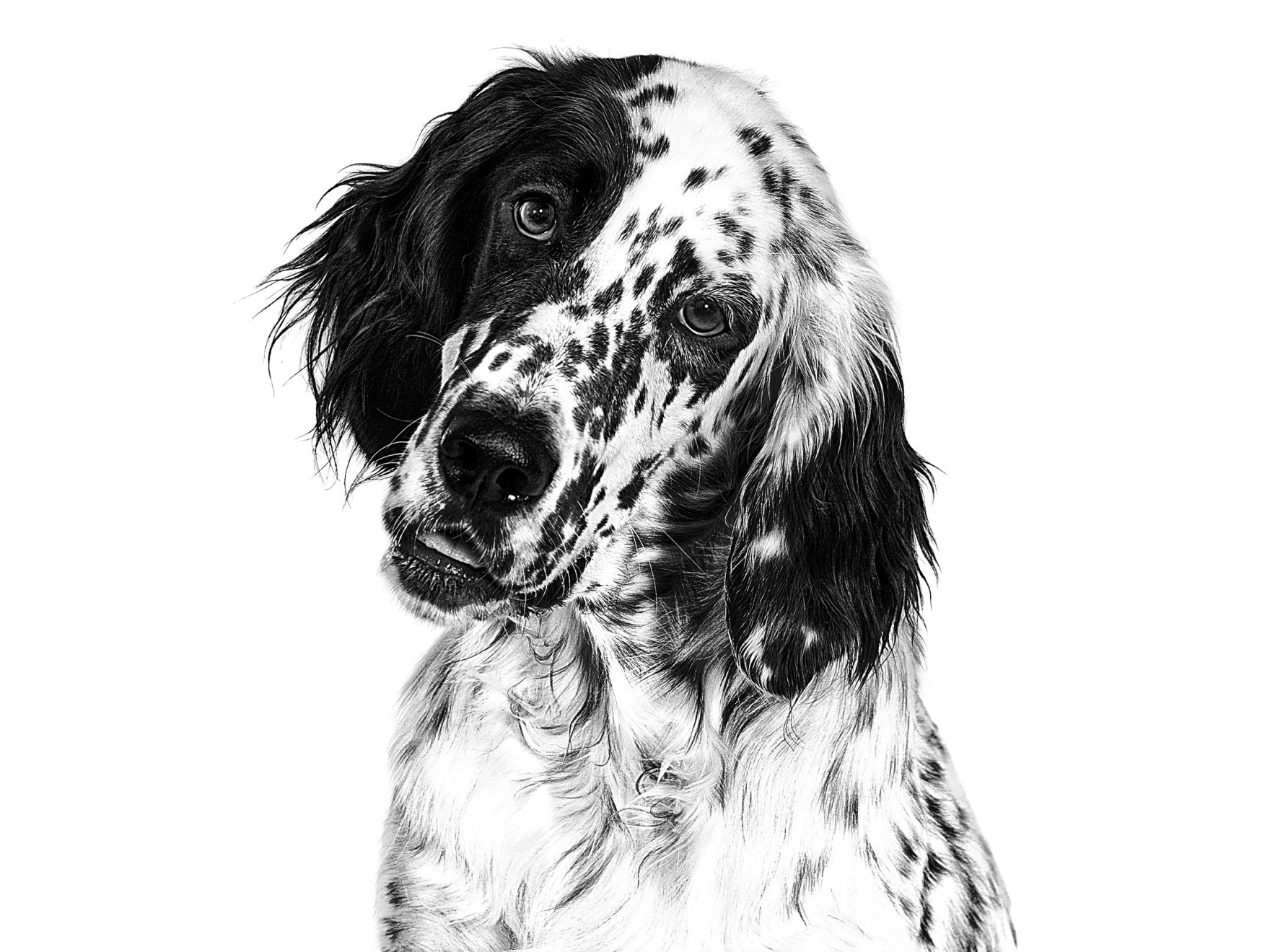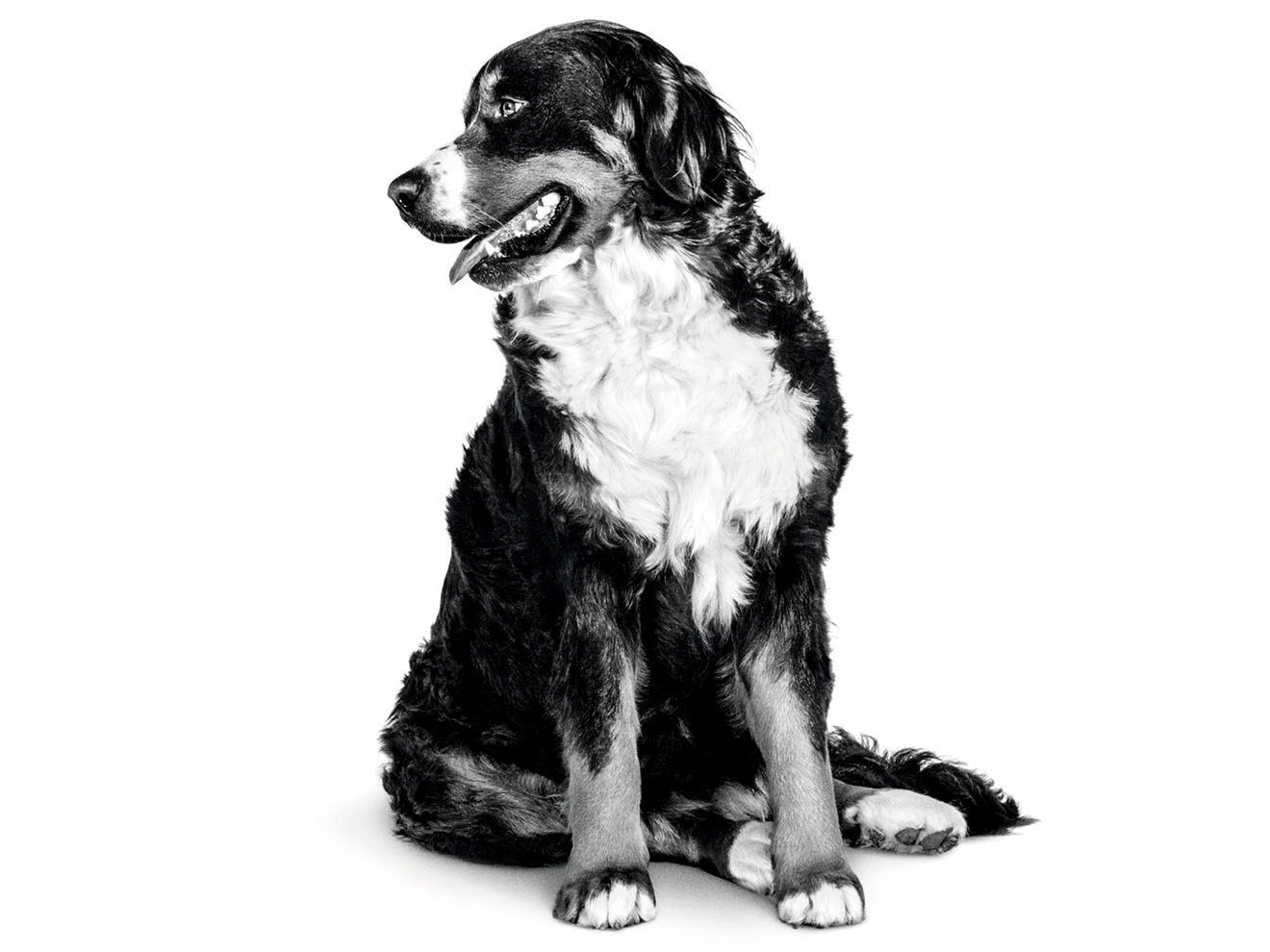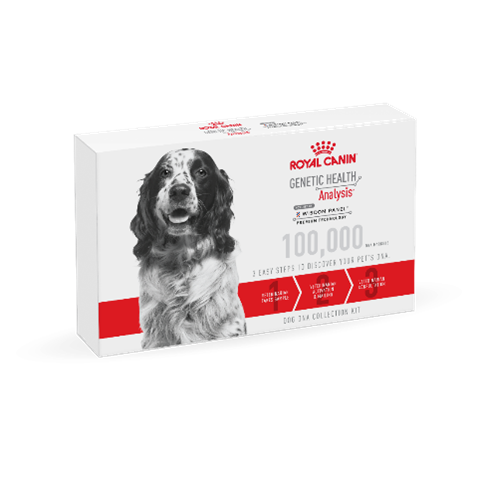
Discover the secrets of your dog's DNA
Using the latest science, this test scans your dog’s DNA, both for ancestry information and specific genetic markers. Your veterinarian can use this information to create a custom health and wellness plan based on your dog’s genetic code.
A ROYAL CANIN® Genetic Health Analysis™ will:
Determine the breeds that make up your dog, comparing your dog’s DNA to the unique genetic signatures of more than 365 dog breeds with your dog’s breed mix reported down to 1%.
Help create a proactive plan for your dog’s health care with more than 265 health conditions including MDR1 for drug sensitivity, as well as, over 50 trait variants, some of which may have health consequences.
Predict your dog’s likely adult weight and size, providing a benchmark you can use to ensure your dog stays at a healthy weight and develop a tailored nutritional plan with your veterinarian.

The science is complex, but the process is simple
Your veterinarian collects a small, painless DNA cheek swab sample. Your veterinarian activates the kit online and mails the sample to the lab. The sample arrives at our lab, where it is processed and analyzed.
After 3-4 weeks, a report is sent to your veterinarian and to you. Meet with your veterinarian to discuss the breed ancestry, how it may impact training and behaviors, and decide together on a health and nutrition plan for your dog.

Buy at a veterinarian near you
Following is a link to more detailed information about the individual disease and trait mutation tests run on each dog as well as a list of all the breeds tested for in the Royal Canin® Genetic Health Analysis™ test.
Link: http://marsveterinary.force.com/royalcaningha/
To accurately detect a dog’s breed mix, you need three things: (1) the ability to collect data at key locations (variants) across the dog’s genome, (2) a sizeable reference database of genetic samples from verified breeds, and (3) a sophisticated set of algorithms to process all the data and make ancestry classifications.
Thanks to 15+ years of collecting high-quality genetic samples from across the globe, we’ve long had the world’s largest breed database of samples with known breed backgrounds! This, along with a custom-curated set of algorithms and analysis of 40x more genetic data points per sample, makes our proprietary dog breed detection system the world’s most accurate. In addition, our genetic health results are >99.99% accurate, thanks to a highly accurate microarray platform and quality control guidelines similar to those used by human genetics testing companies.
